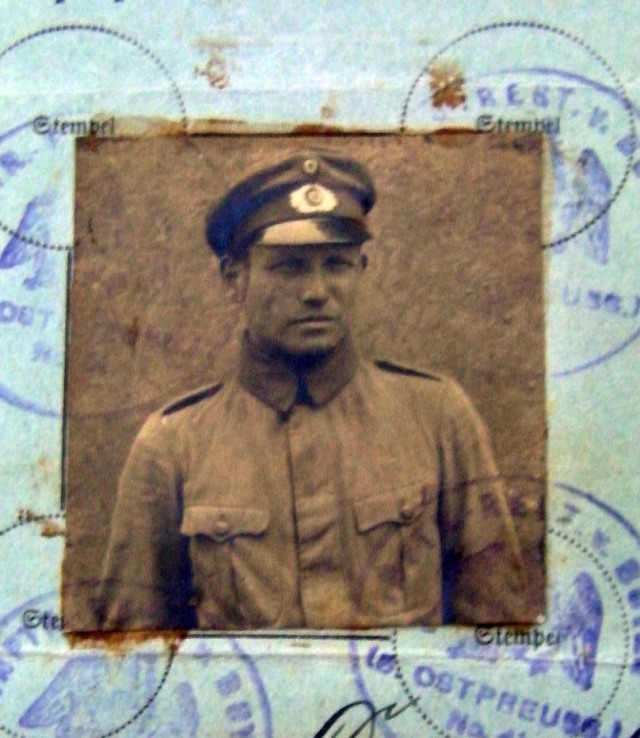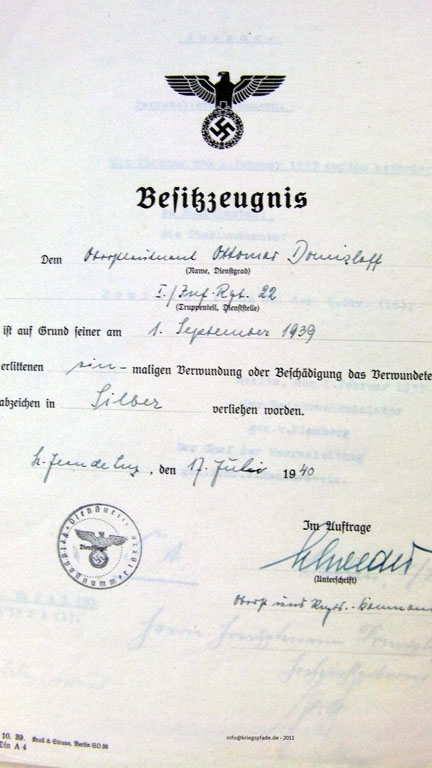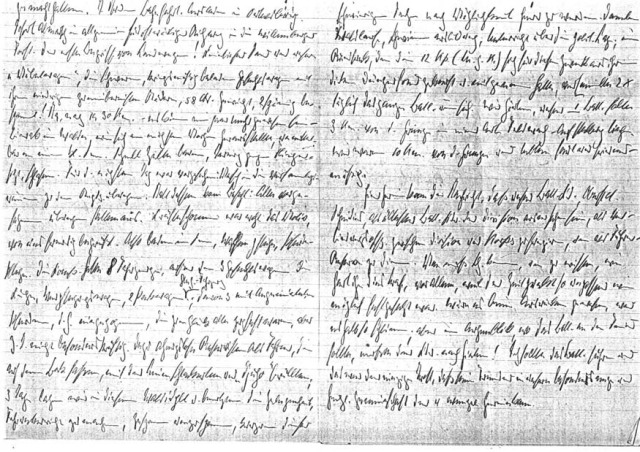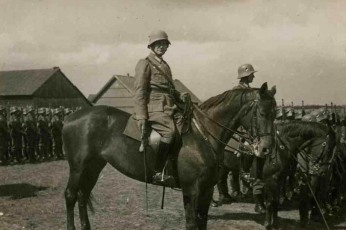UPDATE 6th of July 2012 – in which a rather funny story takes a dark turn.
———————————————————————————
The following story is special and I think its time to publish it.
Last year I got into contact with a militaria collector in the UK who had just bought a collection of military documents that had once belonged to Oberstleutnant Ottomar Domizlaff.
In 1939 Domizlaff was serving in Infanterie-Regiment 22, commanding its first battalion during the polish campaign. By then he had served as soldier for nearly 21 active years! He was a through professional, serving as as Leutnant in World War 1, where he was awarded the Iron Cross 2nd Class. Only three years after the end of the Great War, he rejoined the german army as a Leutnant, signing up for 12 years of service in 1921. He served in Schützen-Regiment 2 and Infanterie-Regiment 5 during which he was promoted to the rank of Hauptmann. In 1939, now a Major, he took command of I./IR22.
In his documents, there is a highly interesting award certificate for the wound badge (Verwundetenabzeichen) in silver. It was awarded in 1940 for a wound received on 1st of September 1939. The date of the Invasion of Poland.
Domizlaff had already been wounded in World War 1, earning the black wound badge in 1917, so it is not unusual that he received the silver grade for a single wound in World War 2.
Unusual was the date the wound was received. There were quite a lot of soldiers who got wounded on the 1st of September 1939, but the number is extremely low compared to all the soldiers who got wounded in the days, months and years after that. Looking from a collectors point of view , finding an award document with this date is very rare. I was intrigued by that and started to dive into the divisional documents available to me to find out more.
The war diaries for the polish campaign had been destroyed during a bombing raid on Berlin in 1942, so finding something in there was impossible. The only remaining material from that period it a war diary of Pionier-Batallion 1, but looking there would be fruitless aswell. It was then, when a friend of mine remembered the letter written by Hauptmann de la Chevallerie on the campaign in Poland.
The report by Hauptmann de la Chevallerie (which is in itself fantastic, as its full of sarcastic remarks and written with a grim sense of humour) shed light on what happened to Ottomar Domizlaff, who might indeed be the first german casualty of the polish campaign and possibly even World War 2!
The regiment, stationed close to the polish border, had been exercising false alarms for a couple of weeks now. Every night the soldiers were called out in full gear and with orders to move out for an imminent attack.
De la Chevallerie writes that:
“On the 31st of August I was called back to the regiment. It was the same old song all over again. Scheidies (commander of 1st Btn.) was on leave and I had to take over. During the night we got the order to move into our attacking positions. The whole thing reminded me of the fable “The boy who cried wolf”, but an order is an order and we obeyed.
On the 1st of September (at three in the morning) we arrived, quite unenthusiastically, at the same spot where we had spent the nights of the 26th and 27th of August. The only difference being that now it rained cats and dogs.
Shortly afterwards we received the order “X-Time 0445h”. As usual, nobody really believed that, but to everyone’s surprise, at precisely 0445h, our artillery fired a few salvos; loudly announcing the start of the war! I have to mention that this was no proper artillery fire, the first salvos were only fired to find the correct range. Still there was one interlude that needs to mentioned.Major Domizlaff, commander of I./IR22. also known as “Borante”, who was massively disliked by old and young, had overzealous as usual, already crawled over the border and had only just been missed by one of our shells. He took a splinter into his arse! Harmless but painful. This story spread like wildfire throughout the division which was soon roaring with laughter.”
Even I had to laugh about that. The professional, overzealous and massively unpopular commander Major Domizlaff got wounded only minutes after 0445h. And I think I am on the safe side if I say that he might very well have been the first german casualty of the polish campaign and maybe even World War 2. Even if he was wounded by friendly fire (he still got the wound badge for it), the wound took him out of action for a couple of weeks.
Far more exiting (and funny) than the usual World War 2 discoveries you see in the media (Hitler had only one testicle, the germans built ufos etc), dont you think? Anyone wants to contact the press? ![]()
Oberstleutnant Domizlaff died on the 8th of January 1941.
UPDATE:
According to the statement of Mr. Rehberg a veteran of IR22 (+2012) Major Domizlaff comitted suicide in January 1941, the fact that he did so being a well know fact inside the regiment and the division. As I had nothing to proof this statement I left that part out of this post. This all changed when I recieved this letter written by Vanessa Domizlaff of Bloomington, Indiana. It sheds light on the person of Ottomar Domizlaff, his family and his dark and horrible fate:
“I was doing a random search, when I came across the claim that Oberstleutnant Ottomar Domizlaff may literally have been the first German casualty of the invasion of Poland. Aside from being completely blindsided by this assertion, I was also admittedly amused by the account of his undignified war injury at first– perhaps it was my inherent reservations in humanizing a man of his position or maybe it was simply the sheer incredulousness of this story.
The person Ottomar was known to me. I understood his position in the constellation of my family – he was the younger cousin of my grandfather and died during the war in a vehicular accident in Gumbinnen while on duty – but I knew close to nothing of his doings. I was initially confused to read the name and description of “Borante” that accompanied the original article. This name is, in fact, the proper name of Ottomar’s youngest brother, Borante Georg Standford Domizlaff, who left his own blemish on history as Major SS-Sturmbannführer when was called to trial along with Herbert Kappler for his involvement in the Ardeatine massacre in Rome. He was later acquitted of all charges and to my amazement went on to star in Dino Risi’s Italian comedy Una vita difficile, playing a role that came natural to him – that of a Nazi officer. After more consideration, I suggest that the name Borante must have been a moniker for Ottomar, one that was either given by his family or one he adopted himself. This idea does not seem too far-fetched considering the meaning that this name carries in our family. As was the fashion among the rising middle class, my family sought to establish a lineage to further elevate their status. They claimed Tepitz and Borante, the two infant sons of Lord Domizlav zu Alten-Stettin, who are documented to be the first Christianized Slavs in Stettin in Poland under Bishop Otto von Bamberg, as our ancestors and perhaps in an attempt to add credibility to this allegation, they re-introduced the name “Borante”. If we accept “Borante” to be a moniker, we honor all of the evidence and testaments collected in the original article, which I believe to be very credible.
Before we share our findings with you, allow me to tell you more of Ottomar Domizlaff:
Karl Ottomar Domizlaff (1897-1941) was the fourth of seven children born to Karl Heinrich Franz (1859-1915) and his wife Margarete Ernestine Momsen, whose brother Hart Momsen lived in the United States and was father to Admiral Charles Bowers “Swede” Momsen, inventor of the “Momsen lung”. Karl was the second son of Julius Dumzlaff (1828-1902) from his second marriage to Franziska Lynker. Julius’s only child from his first marriage to Emilie Lorsbach was my great-grandfather Georg (1857-1937), who served as “Präsident der Oberpostdirektion in Leipzig” as well as the “Feld-Oberpostmeister” during World War I.
While in service, Ottomar’s father Karl was promoted to Reserve-Lieutenant of the Infanterieregiment Nr. 74 in 1883 and later advanced to Hauptmann of the Landwehr-Infanterie. Despite of his advanced age, Karl voluntarily reported to the Front at the outbreak of World War I and led the Reserveinfanterieregiment Nr. 74 as Kompanieführer into combat. He fell on February 18th 1915 during an assault nearby Perthes, Champagne, and succumbed to shots suffered to the head and chest. He was posthumously awarded an Iron Cross of the 2nd class in 1919.
Ottomar’s eldest brother Hart Helmuth served as Reserve-Lieutnant in the same Reserveinfanterieregiment as their father and died on September 7th 1917 in a military hospital in Dun, France, from injuries suffered to his lung while in combat in Verdun. He was awarded the Iron Cross of the 2nd class posthumously. Prior to his death, Hart penned a novel titled, Morituri. His cousin Hans, my grandfather, and Ottomar’s eldest sister Natalie saw to its independent publication in 1917.
The family’s extensive involvement in the military is apparent. Yet we know from Ottomar’s American relatives, that Ottomar and his brother Julius were adament in discouraging their youngest brother Borante from entering service under Hitler and pressured him to take over the family insurance business instead. This insight possibly attests to the sincere attitude of Ottomar towards the realities of war and yet we find him committed to a long-term career without ever having taken a wife or entering any other profession. According to the same source, Ottomar died in France on January 8th 1941. The cause remained unexplained and the location of his death contradicts official records.
Within my branch of the family, we have only one official testament pertaining to Ottomar’s fate, which I have translated for you from Mühlrad, Schulbank und Carrière. Geschichte und Familien-überlieferungen der Domizlaff aus Pommern und Preußen, page 451:
“Karl Ottomar, born on July 22nd, 1897, died 1941, entered German military service and was injured in the first days of World War II in Poland, was then at the Western Front and in East Prussia, and died as Oberstleutnant in a car crash while on duty in Gumbinnen, East Prussia,”.
What intrigued both the author and myself, were the circumstances surrounding Ottomar’s death. Any obvious evidence was in direct conflict with the report made by the veteran of IR22, who was a member of Ottomar’s battalion and whose claim that it was rumored that Ottomar took his own life in January of 1941 ought to be entirely believable based on his insight. The longer we considered the evidence, it didn’t seem unlikely that the ordinary accident was merely a cover-up for a suicide, which would surely be marked as dishonorable within the Wehrmacht as well as his family.
Curious to find out what really happened, my father explored all avenues of gaining insight to Ottomar’s death. Rather quickly, through the assistance of family acquaintances, we were able to determine that it was commonly rumored within our family, and expressively confided by an immediate relative, that Ottomar had not perished in a car crash. In reality, he is said to have been a homosexual, who, in light of his high military rank, was summoned to take his own life, in order to keep face and avoid sentencing and certain execution. In regard to the family’s reputation, and most definitely the Wehrmacht, his death was officially documented as an accident.
Although this is certainly only part of his story, the rumors that Ottomar was a homosexual speaks volumes. It may explain why Ottomar was severely unpopular among the soldiers of his battalion or why he opted for a long-term career in the military without taking a wife. We do not know if he was found out, outed, or commonly known to be a homosexual, but certainly, it must have been a dangerous time. In light of this information, we must come to see and understand Ottomar differently.
I will withhold my personal thoughts from this brief account, but I hope in light of these details, we can inject some humanity into the discussion and begin to understand Ottomar as a complex individual. We can not begin to know what circumstances or motivations drive a person, unless we try to understand them like we would a friend, or in my case, a relative.
I am sincerely grateful to the author of 1infanteriedivision for bringing this story to light, calling Ottomar into question, and allowing me the opportunity to elaborate.
In gratitude,
Vanessa Domizlaff (Bloomington, Indiana).”
Sources:
- Mühlrad, Schulbank und Carrière Geschichte und Familien-überlieferungen der Domizlaff aus Pommern und Preußen. (http://www.hans-domizlaff-archiv.net/index.php?familie)
- The Ancestors and Descendants of Hart Momsen and Susie Bowers Momsen compiled by Ruth Momsen Quast, 2003.
Thanks to this information, which matches the rumors inside IR22 and 1.ID this rather funny story took a turn to the dark side. And as Vanessa correctly points out its most probably the explanation why Ottomar Domizlaff was massively unpopular, and if I may take it a step further, it might also be the reason for his overzealousness. A homosexual officer in a highly traditional division and regiment of the german Wehrmacht had no other choice.
I feel ashamed and bow my head to Karl “Borante” Ottomar Domizlaff. May he rest in peace.
Danke Vanessa….
Author: Robin Schäfer





